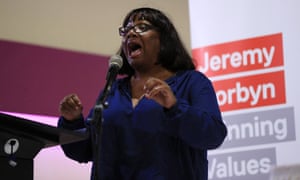The Conservative chair of the health select committee has defended the NHS England chief executive, Simon Stevens, in his dispute with Theresa May over health service funding.
Dr Sarah Wollaston said she agreed with Stevens’ contradiction of May’s claim last Sunday that the NHS had been given more funding than it required up to 2020.
Stevens repeatedly dismissed May’s comments to Sky News when he appeared before the public accounts committee on Wednesday, showing the extent of the divisions between himself and the prime minister.
Asked on Sky News’ Sophy Ridge on Sunday programme if the NHS had been allocated more cash than it needed, Wollaston replied: “I don’t think that is strictly true.”
She said the government’s £10bn figure included transfers from other healthcare budgets. “So, you can see how the government has reached that figure. But the committee felt that a fairer figure, if we’re using the usual measure, was £4.5bn, which is a very different number,” she said.
Health had to be considered with social care “and what Simon Stevens was very clear when he spoke to the committee about, was if you have cuts to social care, that has an enormous impact on the NHS. So that is why he doesn’t agree,” she said.
“And I would agree with him that the NHS hasn’t been given everything it asked for, because it doesn’t actually consider social care, and it doesn’t consider the cuts to public health budgets, the kind of prevention work that we know is essential if we’re going to reduce demand on the NHS.”
Responding to claims that Stevens was not doing enough to alleviate the NHS crisis, Wollaston said “Personally, I think that is unreasonable. I think as a public servant and somebody who heads the NHS, the government needs to give him their unequivocal support in the very hard job he is undertaking to try to get this whole system to work.”
Wollaston, a former GP, also criticised the scapegoating of family doctors and the threat to withdraw funding unless they agreed to work longer hours.
She said it was entirely wrong to blame one section of the workforce, when administrative work, home visits and chasing test results had to be done when surgeries were closed.
GPs were “extraordinarily stretched and working under relentless pressure as bed numbers [in hospitals] are being cut,” she said.
“We now have the lowest number of beds per head in Europe. What we are finding is more and more complex conditions are coming back to primary care, so the work of the GP is changing and the pressures on them are relentless.
“The workforce simply isn’t there in many parts of the country, So I think to then be suggesting that all of this problem is due to GPs not seeing people is really stretching it,” Wollaston said.
“It’s just not the case and wrong to scapegoat them, in my view.”
Tory health committee chair defends NHS chief in funding row with PM
